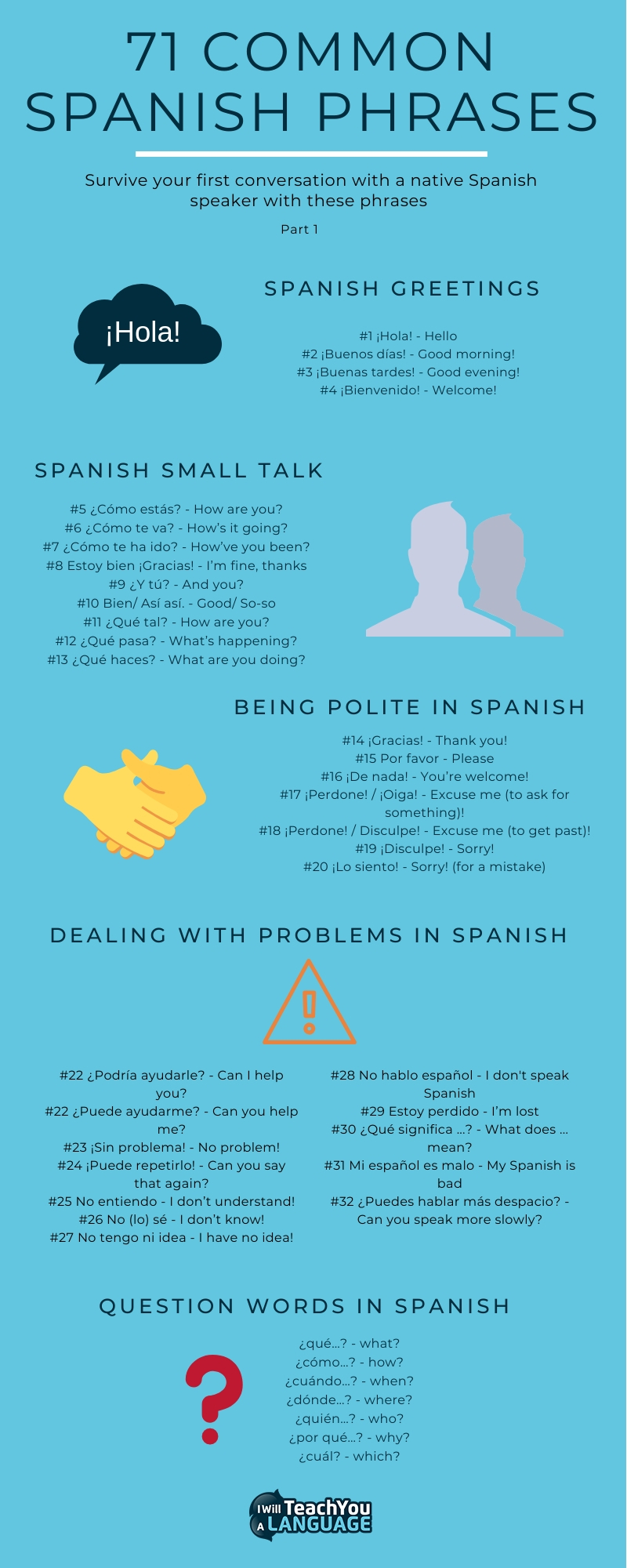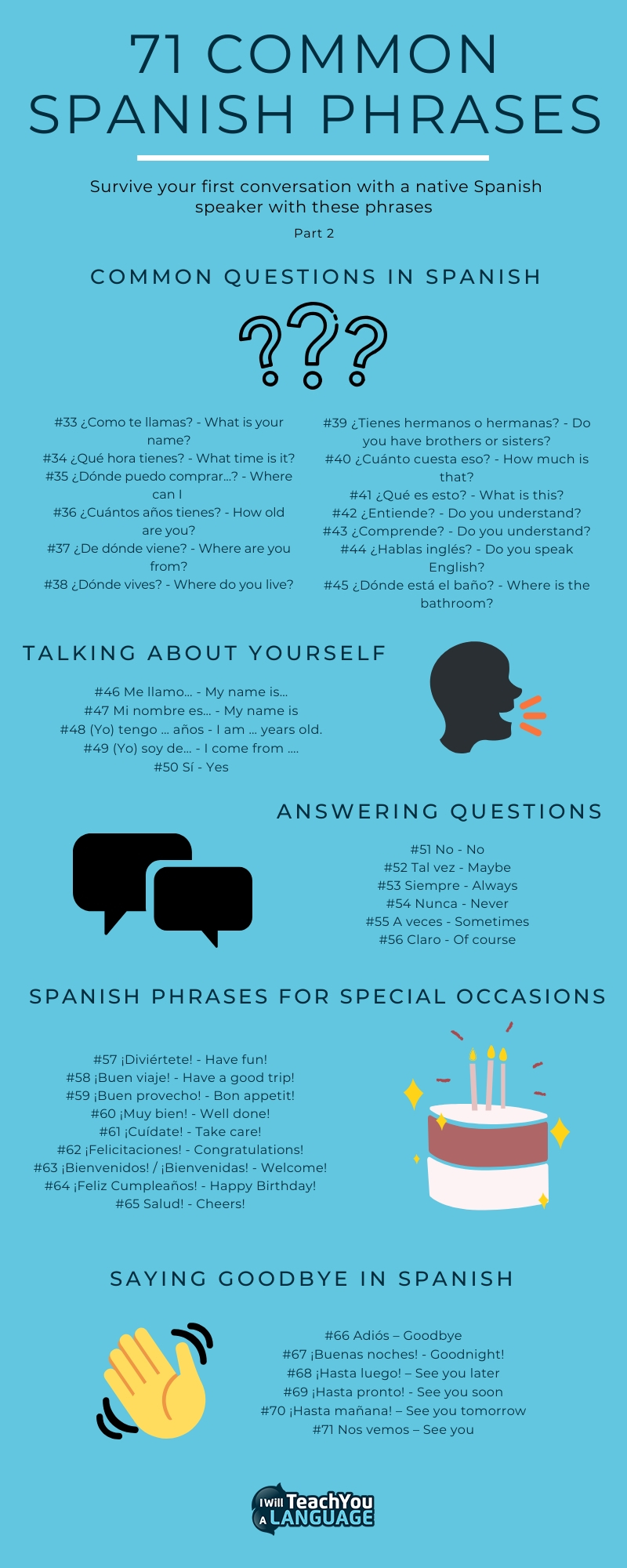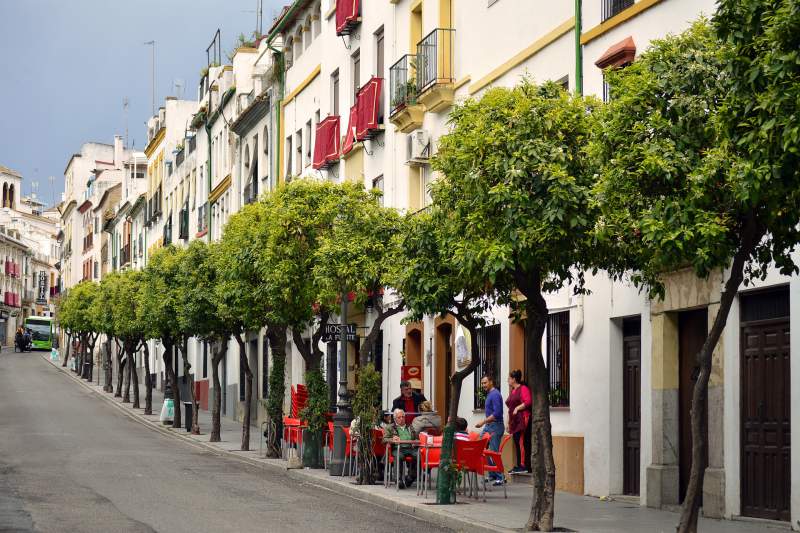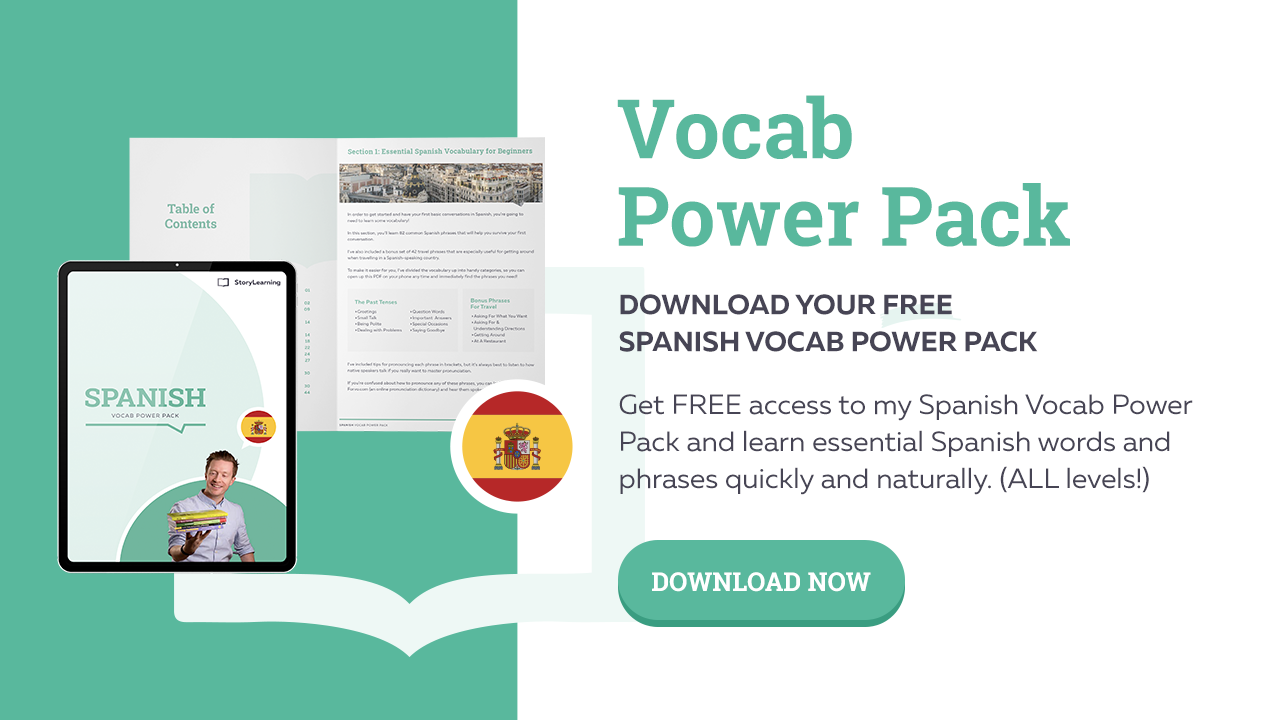talking [ˈtɔːkɪŋ]
adjective
[+bird, doll] que habla
noun
we could hear talking downstairs oíamos a algn hablando abajo; she does all the talking ella es quien habla siempre; I’ll do the talking yo seré el que hable; no talking, please! ¡silencio, por favor!
modifier
talking book (n) audiolibro (m)
talking head (n) (TV) busto (m) parlante (informal)
talking newspaper (n) periódico (m) grabado (en cinta)
talking picture (n) película (f) sonora
talking point (n) tema (m) de conversación
talking shop (n) especially (Britain) reunión (f) donde se habla mucho pero no se hace nada
These examples may contain rude words based on your search.
These examples may contain colloquial words based on your search.
Suggestions
The one you were talking to outside your hotel this afternoon.
Ese con el que hablabas a la entrada del hotel esta tarde.
I’m not talking anymore to anyone till I see him.
No voy a hablar con nadie más hasta que no lo vea.
I stopped by again about the leak and we started talking.
Volví de nuevo por la perdida del baño y comenzamos a hablar.
The man was talking in general, about company’s plans.
El hombre hablaba en general, de los planes de la empresa.
A friend of mine overheard us talking and told your dad.
Un amigo mío nos escuchó hablar y le dijo a su papá.
If we’re talking work ethic, the guy never sleeps.
Si hablamos de ética en el trabajo, el tipo nunca duerme.
This may be the sausage talking, but you’re okay.
Tal vez sea el efecto de las salchichas, pero me agradas.
Sorry for talking your ear off the other night, guys.
Siento por la comida de oreja de la otra noche, chicos.
You can’t rule over things, prevent people from talking.
No se pueden dominar las cosas, impedir que la gente hable.
Someone’s been talking to the press about the chrome murder.
Alguien ha estado hablando con la prensa sobre el asesinato del cromo.
Highlight in a different color why he is talking these actions.
Destaca en un color diferente por qué él está tomando estas acciones.
Really looking forward to talking to you outside of this place.
La verdad es que estoy deseando hablar contigo fuera de este sitio.
Close your eyes and tell me who’s talking right now.
Cierra los ojos y me dicen que es hablando en estos momentos.
Well, I overheard someone talking at school about their vacation.
Oí por casualidad que alguien hablaba en la escuela sobre sus vacaciones.
I believe we’re talking too much about the possession issue.
Yo creo que se está hablando demasiado del tema de la posesión.
Can’t bear being alone, always talking, needing friends.
No soporta estar solo le gusta hablar y necesita a sus amigos.
Sometimes it was as if he was just talking to me.
A veces, era como si solo me estuviese hablando a mí.
We are talking here about cancer and other serious health damage.
Nos referimos al cáncer y a otros daños graves para la salud.
If there is a love-hate aspect then it gets people talking.
Si hay un aspecto de amor-odio, la gente habla de ello.
When talking to each other, avoid rudeness and explicit language.
Al dirigirse el uno al otro, evite groserías y lenguaje vulgar.
Suggestions that contain talking
Results: 120951. Exact: 120951. Elapsed time: 322 ms.
Documents
Corporate solutions
Conjugation
Synonyms
Grammar Check
Help & about
Word index: 1-300, 301-600, 601-900
Expression index: 1-400, 401-800, 801-1200
Phrase index: 1-400, 401-800, 801-1200
All this talking is gonna have to lead to a decision, soon.
Toda esta charla se va a tener que llevar a una decisión pronto.
No talking you out of this, then, is there?
Ninguna charla contigo fuera de esto, entonces,¿está ahí?
And in much of your talking, thinking is half murdered.
Y en gran parte de vuestras conversaciones, el pensamiento es a medias asesinado.
Pins International, Talking Pins, Total Pins, Pins and Pinneries.
Alfileres Internacional, Charla de Alfileres, Alfileres Totales, Alfileres y Alfilererías.
Talking to my wife, I’m not talking to you.
After 3 years of many efforts, meetings, waiting, talking to friends.
Tras 3 años de muchas gestiones, reuniones, esperas, conversaciones con amigos.
That is infinitely more useful than hours and hours of useless talking.
Eso es infinitamente más útil que horas y horas de charla inútil.
Not talking about role playing. Oh. Oh?
Why are my top ministers talking to the press without consulting us?
¿Por qué mis principales ministros están hablando con la prensa sin consultarnos?
I don’t feel comfortable talking to you about that.
No, I have no interest in talking smack about your boyfriend.
Talking while dressing and undressing is strictly forbidden.
Las charlas al vestirse o desvestirse están prohibidas.
Everybody’s talking about Gideon and Mabel’s big date tonight.
On its label are drawn two talking coconuts.
En su etiqueta hay dibujados dos cocos que conversan.
All the talking and the arguing and the complaining.
Todas las charlas y las discusiones y las quejas.
They’re walking straight ahead and not talking to each other.
An extremely, extremely fine mesh-I’m talking of a molecular level here.
I was in the bedroom and heard mom and grandma talking.
Estaba en el dormitorio y oí que mamá y la abuela conversaban.
I haven’t read anything about writers talking with their translators.
Pausa No he le do nada sobre escritores que conversan con sus traductores.
And you’re talking boyfriend/girlfriend, right?
Groups started as disaffected conservatives talking to each other online.
Los grupos comenzaron como conservadores descontentos que conversaban entre sí por internet.
She hears everything, even the neighbor talking.
Ella oye todo, hasta lo que conversan los vecinos.
Results: 40261,
Time: 0.0655
And we’re talking about yellow cards.
I’m not just talking about food!
Lucifer talking someone weaponizing their sexuality?
We’ll know what you’re talking about.
Yes Bitcoin, we’re talking about you.
Well, mostly we’re talking staples here.
Adrian couldn’t stop talking about it.
He’s talking about DAC, not ADC.
She was talking about dahej i.e.
Dont know what I’m talking about?
English
—
Spanish
Spanish
—
English
|
En esta página: talking, talk WordReference English-Spanish Dictionary © 2023:
WordReference English-Spanish Dictionary © 2023:
WordReference English-Spanish Dictionary © 2023:
‘talking‘ aparece también en las siguientes entradas: In the English description: Spanish: |
|
Luis and I are talking to the teacher.
Luis y yo estamos hablando con el maestro.
They are talking in the class.
Ellos están hablando en la clase.
I am talking to the director.
Yo estoy hablando con el director.
He is talking about his new car.
Él está hablando de su carro nuevo.
He would be talking about the need to vaccinate nearly 600 workers.
Estaría hablando de la necesidad de aplicar la vacuna a casi 600 trabajadores.
Dell would be talking to Google to implement Chrome.
Dell estaría hablando con Google para implementar Chrome.
Were you seeing that Juan was talking to them?
¿Veías tú que Juan hablaba con ellos?
The Argentinians are concerned, if not, Maradona would not be talking so much.
Los argentinos están preocupados, si no Maradona no estaría hablando tanto.
You are talking about the photographs.
Tú estás hablando de las fotografías.
She is talking about the accident.
Ella está hablando del accidente.
We are talking to the policeman.
Nosotros estamos hablando con el policía.
The students are talking in the class.
Los alumnos están hablando en la clase.
We don’t like talking about politics.
No nos gusta hablar de política.
Julia is talking to her friend on the phone.
Julia está hablando con su amiga por teléfono.
Felipe is talking to his brother.
Felipe está hablando con su hermano.
Sara and Luisa are talking about the party.
Sara y Luisa están hablando de la fiesta.
I am talking to mom.
Yo estoy hablando con mamá.
While she was looking at her purchases, victoria was talking.
Mientras miraba las compras Victoria hablaba.
What where you talking about while you were working?
¿De qué hablabas mientras trabajabas?
Juanita and Martínez were talking on the phone.
Juanita y Martínez estaban hablando por teléfono.
What are we talking about here?
¿De qué se trata ahora?
That is all we are talking about.
Eso es todo lo que estamos debatiendo.
Who should do the talking?
¿Quién debería sentarse a hablar?
What are we talking about then?
¿De qué estamos hablando entonces?
What are we talking about?
¿De qué hablamos?
What are we talking about?
¿De qué estamos hablando?
What are we talking about?
¿De qué estamos hablando?
What are we talking about?
¿De qué estamos hablando?
What are we talking about?
¿De qué estamos hablando?
But what is it we are talking about?
Pero, ¿de qué estamos hablando?
That is what we are talking about.
De eso es de lo que estamos hablando.
What are we talking about here?
¿De qué estamos hablando aquí?
What am I talking about?
¿De qué estoy hablando?
We are talking about all of that.
De todo eso estamos hablando.
What were we talking about then?
¿De qué hablábamos entonces?
So, what am I talking about?
Así pues, ¿de qué les estoy hablando?
So what is it that we are talking about, then?
¿De qué estamos hablando entonces?
What are we talking about?
¿De qué estamos hablando?
That is what we are talking about here.
De eso es de lo que estamos hablando.
What are we talking about here?
¿De qué estamos hablando aquí?
That is what we are talking about.
Esto es lo que estamos debatiendo.
What are we talking about here?
¿De qué estamos hablando aquí?
That is not what I am talking about.
No estoy hablando de eso.
What are we talking about here?
¿Sobre qué estamos hablando?
I am all for talking about it, I am all for talking more about it, I am all for the Commission’s doing something about it.
Estoy a favor de que hablemos de ello, estoy a favor de que hablemos más de ello, estoy a favor de que la Comisión haga algo al respecto.
We are talking about history, we are not talking about the future.
Estamos hablando de la historia, no del futuro, ya que nadie sabe lo que este depara.
So we are talking about action and we are talking about the timetable.
Así que estamos hablando de pasar a la acción y sobre el calendario para hacerlo.
We are only talking about the cohesion policies; that is all we are talking about.
Sólo estamos hablando de las políticas de cohesión; no hablamos de nada más.
This is all I am talking about here, just that.
Se trata única y exclusivamente de esto.
We are not talking about words here.
No estamos hablando de palabras en este caso.
I am talking about Milosevic.
Estoy hablando de Milosevic.
What proportion are we talking about?
¿Cuál es la proporción?
I am talking about success.
Digo a llevarla a buen término.
So you know what I am talking about.
Saben por tanto de qué hablo.
You were not talking about democracy.
¡Pero usted no ha hablado de democracia!
We are all guilty of talking.
Todos somos culpables de hablar.
But what justice are we talking about?
Pero ¿de qué justicia estamos hablando?
What balance are we talking about?
¿De qué equilibrio hablamos?
What ideal are we talking about then?
¿Cuál?
I do not know what you are talking about.
No sé de qué hablan.
What exactly are we talking about here?
¿De qué estamos hablando verdaderamente aquí?
We are talking politics here.
Aquí debatimos sobre temas políticos.
We are talking about our future.
Se trata de nuestro futuro.
The time for talking is over.
Ya ha pasado el tiempo de hablar.
What is this right that we are talking about?
¿A qué derecho nos estamos refiriendo?
Who are the peoples we are talking about?
¿Quiénes son esos pueblos de los que estamos hablando?
We are not talking about application.
No hablamos de aplicación.
This is the people talking.
Es lo que dice la gente.
They are talking about other issues.
Habla de otras cuestiones.
What were people talking about there?
¿De qué hablaba la gente allí?
[ view all sentence pairs ]
Home
About
Blog
Contact Us
Log In
Sign Up
Follow Us
Our Apps
Home>Words that start with T>talking>English to Spanish translation
How to Say Talking in SpanishAdvertisement
Categories:
General
Communication
If you want to know how to say talking in Spanish, you will find the translation here. We hope this will help you to understand Spanish better.
Here is the translation and the Spanish word for talking:
hablando
Edit
Talking in all languages
Dictionary Entries near talking
- talisman
- talk
- talkative
- talking
- tall
- tall building
- tall man
Cite this Entry
«Talking in Spanish.» In Different Languages, https://www.indifferentlanguages.com/words/talking/spanish. Accessed 14 Apr 2023.
Copy
Copied
Check out other translations to the Spanish language:
- concentrate
- content word
- cultural perspective
- deplore
- extensive research
- favourably
- for starters
- huge
- insect repellent
- nope
Browse Words Alphabetically

Do you want to learn Spanish?
Or perhaps you’re planning a trip to a Spanish-speaking country?
In order to get started and have your first basic conversations in Spanish, you’re going to need to learn some vocabulary!
In this post, you’ll learn 71 common Spanish phrases. And to make it easier for you, I’ve divided the phrases up into the main sections that form the building blocks of conversation:
- Greetings
- Small Talk
- Being Polite
- Dealing with Problems
- Question Words
- Important Answers
- Special Occasions
- Saying Goodbye
Whether you’re going to Mexico or Medellín chances are you’ll find some of the locals can speak a bit of English. But if you speak some Spanish, you’ll be able to have much more enjoyable and authentic experiences when you travel.
Having a few common Spanish phrases up your sleeve when you’re starting out in the language allows you to experience local culture and hospitality in a completely different way.
You never know, maybe learning these phrases will motivate you to learn Spanish to fluency!
By the way, if you want to learn Spanish through stories, not rules, my top recommendation for language learners is my Uncovered courses, which teach you through StoryLearning®. Click here to find out more and try out the method for free.
If you prefer watching videos, then you can check out these phrases in the video below. Or just keep scrolling to read the full post.
To make it as easy as possible for you to practice these phrases in your Spanish conversations, I’ve created a special Spanish Vocab Power Pack that include all of these phrases, plus a TONNE of other essential Spanish vocabulary. You can grab a copy for free!
Click here to download your copy now. (It’s FREE!)
Common Spanish Phrases Cheatsheet
For a quick overview of these basic Spanish phrases, check out the cheatsheet below. Consider this you own visual Spanish phrasebook.
But make sure you read the rest of the post though for details on the pronunciation of these Spanish phrases, including audio for the tricky words and sounds. And one or two other bonus bits of information about Spanish language and culture.


Spanish Greetings

Understanding what you should say when you meet and greet people is the least you can do if you want to make a good impression.
After all, you’re going to be using greetings every time you have a conversation in Spanish!
These phrases are simple, easy to remember and will go a long way to help you make friends and have your first conversations in the language.
- #1 ¡Hola! – Hello
- (O-la)
- #2 ¡Buenos días! – Good morning!
- (BWAY-nos DEE-as)
- #3 ¡Buenas tardes! – Good evening!
- (BWAY-nas TAR-des)
- #4 ¡Bienvenido! – Welcome!
- (bee-en-ben-EE-doh)
I’ve included tips for pronouncing each phrase in brackets, but it’s always best to listen to how native speakers talk if you really want to master pronunciation.
If you’re confused about how to pronounce any of these phrases, you can look them up on Forvo (an online pronunciation dictionary) and hear them spoken by native speakers.
Keeping The Conversation Going: Small Talk In Spanish

Making small talk is something you’re going to do a lot of. So there’s every reason to know how to do it properly.
Besides, small talk is the gateway to real communication; you need to be able to do it in order to really speak to a person.
Making small talk is not something most of us enjoy in our own language, so doing it in a foreign language can be a bit daunting. But trust me, being able to engage in small talk will allow you to get a conversation started.
Making conversation in whatever way you can as a beginner will allow you to grow in confidence and figure out what you need to learn next in Spanish.
Here are some phrases you can use to get the conversation going:
- #5 ¿Cómo estás? – How are you?
- (KOH-moh eh-STAHS)
- #6 ¿Cómo te va? – How’s it going?
- (KOH-moh te BAH)
- #7 ¿Cómo te ha ido? – How’ve you been?
- (KOH-moh te ah EE-doh)
- #8 Estoy bien ¡Gracias! – I’m fine, thanks
- (eh-STOY bee-en GRA-thee-as/GRA-see-as)
- #9 ¿Y tú? – And you?
- (ee too)
- #10 Bien/ Así así. – Good/ So-so
- (bee-en / a-SEE a-SEE)
- #11 ¿Qué tal? – How are you?
- (kay tal)
- #12 ¿Qué pasa? – What’s happening?
- (kay PA-sa)
- #13 ¿Qué haces? – What are you doing?
- (kay AH-says)
Did you notice anything strange about the pronunciation of the phrase ¿Cómo te va?
The ‘v’ in va is pronounced almost like a ‘b’.
In English, the letter’s ‘b’ and ‘v’ represent different sounds, but in Spanish, they represent the same sound.
This sound is different from anything we have in English. It’s like a B, but softer. Listen to how I pronounce the word ¡Vale! (‘ok’) in this recording to see how it sounds:
To find out more, check out my complete guide to the difference between ‘b’ and ‘v’ in Spanish.
Being Polite In Spanish

Of course, no matter what language you’re speaking, politeness goes a long way. Whether you need to make an apology or just want to thank someone, you’re going to use these phrases a lot!:
- #14 ¡Gracias! – Thank you!
- (GRA-thee-as/GRA-see-as)
- #15 Por favor – Please
- (por fah-BOR)
- #16 ¡De nada! – You’re welcome!
- (de NA-da)
- #17 ¡Perdone! / ¡Oiga! – Excuse me (to ask for something)!
- (per-DON-ay/ OY-ga)
- #18 ¡Perdone! / Disculpe! – Excuse me (to get past)!
- (per-DON-ay/ dis-KUL-pay)
- #19 ¡Disculpe! – Sorry!
- (if you didn’t hear something) (dis-KUL-pay)
- #20 ¡Lo siento! – Sorry! (for a mistake)
- (lo see-EN-to)
Dealing With Problems In Spanish

Of course, not every conversation or language exchange will go smoothly.
What should you do when you don’t understand something? Or if you need to ask someone for help?
It’s important to know some basic Spanish phrases you can use for dealing with problems when they arise. If you need someone to speak more slowly or to repeat something, the best thing to do is just ask them!
- #22 ¿Podría ayudarle? – Can I help you?
- (poh-DREE-a ay-oo-DAR-le)
- #22 ¿Puede ayudarme? – Can you help me?
- (PWE-day ay-oo-DAR-may)
- #23 ¡Sin problema! – No problem!
- (sin prob-LAME-ah)
- #24 ¿Puede repetirlo? – Can you say that again?
- (PWE-day re-pet-EER-lo)
- #25 No entiendo – I don’t understand!
- (no en-tee-EN-do)
- #26 No (lo) sé – I don’t know!
- (no lo say)
- #27 No tengo ni idea – I have no idea!
- (no TEN-go nee ee-DAY-ah)
- #28 No hablo español – I don’t speak Spanish
- (no AB-lo es-pan-YOL)
- #29 Estoy perdido – I’m lost
- (eh-STOY per-DEE-do)
- #30 ¿Qué significa …? – What does … mean?
- (kay sig-nif-EE-ka)
- #31 Mi español es malo – My Spanish is bad
- (mi es-pan-YOL es MA-lo)
- #32 ¿Puedes hablar más despacio? – Can you speak more slowly?
- (PWE-des ab-LAR mas des-PATH-ee-o)
The word despacio in the last phrase is interesting. Notice that the ‘c’ is pronounced like ‘th’ in this context.
This is the traditional Spanish pronunciation used in Spain. However, in Latin America, people pronounce the ‘c’ as an ‘s’ sound (e.g. des-PAS-ee-o).
Curious about this and other variations in Spanish in the world? This guide explains the 3 key differences in Spanish varieties that you’ll hear in different countries and regions.
Question Words In Spanish

Conversation is a two-way street. So if you want to really connect with people, you need to be able to ask questions. Here are the Spanish question words you need to know:
- ¿qué…? – what?
- (kay)
- ¿cómo…? – how?
- (KOH-moh)
- ¿cuándo…? – when?
- (KWAN-doh)
- ¿dónde…? – where?
- (DON-day)
- ¿quién…? – who?
- (KEE-en)
- ¿por qué…? – why?
- (por KAY)
- ¿cuál? – which?
- (kwal)
It’s a good idea to just memorise these words right away. You’re going to come across them again and again so it’s important you’re comfortable with them.
Pro tip: Question words are always written with an accent and with opening/closing question marks.
There are lots of questions which we use regularly in everyday conversation but we often don’t realise how important they are.
Not having them in your repertoire will leave you tongue-tied and at a loss in many situations.
Here are some examples of questions that are useful to know:
- #33 ¿Cómo te llamas? – What is your name?
- (KOH-moh teh YAH-mas)
- #34 ¿Qué hora tienes? – What time is it?
- (kay OH-ra tee-EN-es)
- #35 ¿Dónde puedo comprar…? – Where can I buy…?
- (DON-day PWAY-do kom-PRAR)
- #36 ¿Cuántos años tienes? – How old are you?
- (KWAN-tos AN-yos tee-EN-es)
- #37 ¿De dónde vienes? – Where are you from?
- (de DON-day bee-EN-ays)
- #38 ¿Dónde vives? – Where do you live?
- (DON-day BEE-bes)
- #39 ¿Tienes hermanos o hermanas? – Do you have brothers or sisters?
- (tee-EN-es er-MA-nos o er-MA-nas)
- #40 ¿Cuánto cuesta eso? – How much is that?
- (KWAN-to KWES-ta E-so)
- #41 ¿Qué es esto? – What is this?
- (kay es ES-to)
- #42 ¿Entiende? – Do you understand?
- (en-tee-EN-day)
- #43 ¿Comprende? – Do you understand?
- (com-PREN-day)
- #44 ¿Hablas inglés? – Do you speak English?
- (AB-las in-GLAYS)
- #45 ¿Dónde está el baño? – Where is the bathroom?
- (DON-day es-TAH el BAN-yo)
Talking About Yourself & Answering Questions In Spanish

Learning how to ask questions in Spanish is all good and well. But if you’re dealing with questions, you need to be able to deal with answers too!
Here’s how you can respond to some of the questions above:
- #46 Me llamo… – My name is…
- (me YA-mo …)
- #47 Mi nombre es… – My name is
- (mi NOM-bray es …)
- #48 (Yo) tengo … años – I am … years old.
- (yo TEN-go … AN-yos)
- #49 (Yo) soy de… – I come from ….
- (yo soy de …)
- #50 Sí – Yes
- (see)
- #51 No – No
- (no)
- #52 Tal vez – Maybe
- (tal ves)
- #53 Siempre – Always
- (see-EM-pray)
- #54 Nunca – Never
- (NUN-kah)
- #55 A veces – Sometimes
- (a BEH-says)
- #56 Claro – Of course
- (KLA-ro)
Spanish Expressions For Special Occasions

There are a number of common expressions that are used regularly to denote special circumstances or for special occasions.
These phrases are ideal for events like birthdays, meals with friends or even for ending the conversation:
- #57 ¡Diviértete! – Have fun!
- (di-bih-EHR-te-te)
- #58 ¡Buen viaje! – Have a good trip!
- (bwu-EN bih-AH-hay)
- #59 ¡Buen provecho! – Bon appetit!
- (bwu-EN pro-BE-choh)
- #60 ¡Muy bien! – Well done!
- (mwee bee-EN)
- #61 ¡Cuídate! – Take care!
- (kw-EE-dah-tay)
- #62 ¡Felicitaciones! – Congratulations!
- (fe-lis-i-ta-see-ON-es)
- #63 ¡Bienvenidos! / ¡Bienvenidas! – Welcome!
- (bee-en-ben-EE-dos / bee-en-ben-EE-das)
- #64 ¡Feliz Cumpleaños! – Happy Birthday!
- (fe-LEES kump-lay-AN-yos)
- #65 ¡Salud! – Cheers!
- (Sa-LOOD)
Saying Goodbye In Spanish

Saying goodbye is never easy, especially in a foreign language when you don’t know how to do it!
Whether you are bidding farewell to friends you’re going to see later or to somebody you’ll never see again, make sure you know how to say your goodbyes appropriately.
In any case, Spanish has lots of different options:
- #66 Adiós – Goodbye
- (ah-dee-OS)
- #67 ¡Buenas noches! – Goodnight!
- (BWAY-nas NO-ches)
- #68 ¡Hasta luego! – See you later
- (AS-ta loo-AY-go)
- #69 ¡Hasta pronto! – See you soon
- (AS-ta PRON-to)
- #70 ¡Hasta mañana! – See you tomorrow
- (AS-ta man-YAN-a)
- #71 Nos vemos – See you
- (nos BAY-mos)
Your Next Steps In Spanish
So there you have it: everyday common Spanish phrases to help you get started on your Spanish learning journey.
With these phrases in your back pocket, you’ll soon find yourself having your first basic conversations and looking forward to getting fluent in Spanish!
So now that you’ve learned the basics, are you ready to take the next step on your Spanish journey?
I’m a big believer in the power of story to enable you to learn a language. That’s why I’ve created an entire beginner course dedicated to learning Spanish by immersing yourself in an engaging story.
It’s my Spanish Uncovered course, and it’s designed to take you from beginner to B1 Intermediate level.
Click here for more information on the course and how it’ll help you.
Put on your learning cap, grab a cup of coffee, and get comfy because we’re about to cover the 1,000 most common Spanish words for beginners! There are nearly a million words in the Spanish language, but luckily you don’t need to memorize them all to speak Spanish.
We’ve picked out the 1,000 most common Spanish words and created this categorized vocabulary guide so that you can effectively communicate in Spanish—even as a beginner!
Join 559 million people on the planet who speak Spanish!
Sign up for a free trial Spanish class today! ➡️


The Essentials
For any Spanish beginner, it’s always important to know the essentials. These are must-know words and phrases if you’ve just started learning. Take a look at these first words in our guide of the 1,000 most common Spanish words.
- sí — yes
- no — no
- ¿entiende(s)? — do you understand?
- no entiendo — i don’t understand
- no (lo) sé — i don’t know
- no tengo ni idea — i have no idea
- no hablo español — i don’t speak spanish
- estoy perdido(a) — i’m lost
Introduce Yourself
Introducing yourself is always one of the best ways to start speaking Spanish! That’s why we included these essential conversation starters into our list of the 1,000 most common Spanish words.
- me llamo — my name is
- mi nombre es — my name is
- soy… — i’m…
- ¿cómo te llamas? — what is your name?
- (yo) soy de… — i am from…
Join one of the 40,000 classes that we teach each month and you can experience results like these…

“This is the best way for your kid to learn Spanish. It’s one-on-one, taught by native Spanish speakers, and uses a curriculum.”
– Sharon K, Parent of 3

“It’s a great way to learn Spanish, from native Spanish speakers in a 1-on-1 environment. It’s been fairly easy to schedule classes around my daughter’s other classes. The best value for us has been ordering multiple classes at a time. All the instructors have been great!”
– Cindy D, Parent of 3

“HSA offers very affordable, quality, one on one classes with a native speaker. My son has greatly benefited from taking classes. We have seen his confidence increase as well as his pronunciation improve, because he learns from a native Spanish speaker. HSA has quick, personal customer service. Our family has been very pleased with our experience so far!”
– Erica P. Parent of 1
What’s Up
- ¿cómo está usted? — how are you? (formal)
- ¿cómo estás? — how are you? (informal)
- ¿qué tal? — how are you? (informal) / what’s up?
- ¿cómo te va? — how ‘s it going?
- ¿qué haces? — what are you doing?
- ¿qué pasa? — what ‘s happening?
Want to study Spanish on your own? Check out Lingvist.
Responses
These common Spanish words and versatile replies make for an easy response to dozens of questions!
- ¿y tú? — and you?
- muy bien — very well
- así, así — so, so
- mal — bad
- como siempre — as always
Etiquette Words
- ¡de nada! — you’re welcome! / no problem!
- por favor — please
- ¡perdon! — excuse me!
- ¡disculpe! — excuse me!
- ¡lo siento! — sorry!
- gracias — thank you
- salud — bless you
Question Words
- ¿qué…? — what?
- ¿quién…? — who?
- ¿cuándo…? — when?
- ¿dónde…? — where?
- ¿por qué…? — why?
- ¿cuál? — which?
- ¿cómo…? — how?
Spanish Pronouns
- Yo — I
- tú (informal) — you
- usted (formal) — you
- él — he
- ella — she
- nosotros/nosotras — we
- ustedes — you all
- ellos — they
- ellas(females) — they
Greetings
- hola — hello
- buenos días — good morning
- buenas tardes — good afternoon
- buenas noches — good evening / good night

Talking About Age
- (yo) tengo … años — i am … years old.
- old — viejo/a
- young — joven
- middle-aged — de mediana edad
- youthful — juvenil
- nuevo/a – new
Celebrate!
- ¡feliz cumpleaños! — happy birthday!
- ¡felicitaciones! — congratulations!
- ¡diviértete! — have fun!
- ¡buen provecho! — bon appetit!
- ¡bienvenidos! / ¡bienvenidas! — welcome!
- salud! — cheers!
Say Good-Bye
- adiós — goodbye
- chao — goodbye
- hasta luego — see you later (most likely today)
- hasta mañana — see you tomorrow
- nos vemos — see you (informal)
- ¡cuídate mucho! — take care!
- ¡tenga un buen día! — have a nice day!
- ¡hasta luego! — see you soon!
- ¡buen viaje! — have a good trip!
Join the 559 million people on the planet who speak Spanish!
Sign up for your free trial class with us at Homeschool Spanish Academy ➡️
Time Words
No list of the 1,000 most common Spanish words would be complete without time words.
Days of the Week
- Domingo — Sunday
- Lunes — Monday
- Martes — Tuesday
- Miércoles — Wednesday
- Jueves — Thursday
- Viernes — Friday
- Sabado — Saturday
Months of the Year
- Enero — January
- Febrero — February
- Marzo — March
- Abril — April
- Mayo — May
- Junio — June
- Julio — July
- Agosto — August
- Septiembre — September
- Octubre — October
- Noviembre — November
- Diciembre — December
Other Time Words
- anteayer — day before yesterday
- ayer — yesterday
- el año — year
- el día — day
- el mes — month
- el siglo — century
- la hora — hour
- hoy — today
- la semana — week
- madrugada — dawn, very early in the morning
- mañana — tomorrow
- mañana — morning
- medianoche — midnight
- mediodia — noon
- el minuto — minute
- la noche — night
- el pasado mañana — day after tomorrow
- los segundos — seconds
- la tarde — afternoon
Family Words
This Spanish vocab helps you talk about your relatives.
Nuclear Family
- el padre — father
- el papá — dad
- la madre — mother
- la mamá — mom
- el hermano — brother
- la hermana — sister
- el hijo — son
- la hija — daughter
- la familia cercana — close family
Extended Family
- el abuelo — grandfather
- la abuela — grandmother
- el bisabuelo — great-grandfather
- la bisabuela — great-grandmother
- la nieta — granddaughter
- el nieto — grandson
- el tío — uncle
- la tía — aunt
- el tío abuelo — great-uncle
- la tía abuela — great-aunt
- el primo — cousin (male)
- la prima — cousin (female)
- mis parientes — my relatives
Family Verbs
- abrazar — to hug
- amar — to love
- reír — to laugh
- perdonar — to forgive


Action Verbs
- empezar — to start
- seguir — to follow
- abrir — to open
- buscar — to search
- cantar — to sing
- cerrar — to close
- destruir — to destroy
- dormir — to sleep
- encontrar — to find
- esconder — to hide
- esperar — to wait
- faltar — to miss
- hacer — to do
- intentar — to try
- llamar — to call
- llevar — to take
- llorar — to cry
- luchar — to fight
- mentir — to lie
- odiar — to hate
- recibir — to receive
- reconocer — to recognize
- robar — to steal
- salvar — to save
- sonreír — to smile
- soñar — to dream
- tomar — to take
- Vivir — to live
The Five Senses
Spice up your Spanish with these common words for your senses.
Sound
- tranquilo/a – quiet
- ruidoso/a – loud
- gritar — to shout
- escuchar — to hear
- silencio — silence
- alto — loud
- bajo — soft
- ensordecedor — deafening
- agudo — sharp, high-pitched
- grave — low-pitched
- melodioso — melodious
- armónico — harmonic
- zumbido — buzz
- sordo — deaf
- duro de oíd — hard of hearing
- oído fino — acute hearing
- problemas de audición — hearing-impaired
- fuera de alcance — out of earshot
Sight
- ver — to see
- mirar — to look
- de colores— colorful
- blanco y negro — black and white
- brillante — bright
- apagado — dim
- claro — light
- oscuro — dark
- ciego — blind
- mirar fijamente — to stare
- echar un vistazo — to glance
- bizquear — to squint
- guiñar — to wink
- parpadear — to blink
Touch
- tocar — to touch
- agarrar — to grab
- suave — soft
- áspero(a) — rough
- liso(a) — smooth
- rugoso(a) — wrinkled
- pegajoso(a) — sticky
- punzante — sharp
- sedoso(a) — silky
- esponjoso(a) — spongy
- mullido(a) — fluffy
- hormigueo — tingle
- entumecido(a) — numb
- rozar — to touch gently
- acariciar — to caress
- agarrar — to grab
Smell
- olor — smell
- el perfume — scent
- la fragancia — fragrance
- el hedor — stench
- apestoso(a) — smelly
- fresco(a) — fresh
- acre — pungent
- húmedo(a) — musty
- podrido(a) — rotten
- ahumado(a) — smoky
- apestar — to stink
Taste
- gusto —- taste
- sabor — flavor
- probar — try
- sabroso — está sabrosa
- delicioso — delicious
- perfecto — perfect
- apetitoso — appetizing
- dulce — sweet
- dulzón — sugary
- soso — bland
Describing Words
Distance
- abierto/a – open
- ancho/a – wide
- estrecho/a – narrow
- lejano/a – far
- cercano/a – close
Personality and Emotions
- alegre – joyful
- gracioso/a – funny, amusing
- serio/a – serious
- tímido/a – shy
- valiente – brave
- loco/a – crazy
- contento(a) — content
- feliz — happy
- preocupado(a) — worried
- nervioso(a) — nervous
- tranquilo(a) — tranquil
- calmado(a) — calm
- emocionado(a) — excited
Physical Adjectives
Hair
- largo/a — long
- corto/a — short
- liso/a — straight
- rizado/a — curly
- ondulado/a — wavy
- castaño/a — brown
- rubio/a — blonde
- pelirrojo/a — red
- negro/a — black
- canoso/a — grey
- abundante — thick
- fino/a — thin
- escalado/a — layered
- teñido/a — dyed
- saludable — healthy
- claro/a — light
- encrespado/a — frizzy
- brillante — shiny
- calvo/a — bald
Size
- grande – big
- pequeño/a – small
- enorme – huge
- delgado/a — lean
- esbelto/a — slender
- flaco/a — skinny
- menudo/a — petite
- alto/a — tall
- bajo/a — short
Looks
- hermoso/a — beautiful
- guapo/a — handsome
- feo/a — ugly
- adorable — cute
- bonita — pretty
- impresionante — stunning
- poco atractivo/a — plain
- promedio/a — average
- atractivo/a — attractive
Colors
- negro — black
- marrón / café — brown
- gris — grey
- blanco — white
- amarillo — yellow
- anaranjado — orange
- rojo — red
- rosado — pink
- morado / púrpura — purple
- azul — blue
- verde — green
Arts and Crafts
- colorear — to color
- construir — to construct
- cortar — to cut
- coser — to sew
- dibujar — to draw
- pintar — to paint
Numbers
- cero — zero
- uno — one
- dos — two
- tres — three
- cuatro — four
- cinco — five
- seis — six
- siete — seven
- ocho — eight
- nueve — nine
- diez — ten
Animals
This animal vocab will help you talk about animals both on land and in the ocean!
Farm Animals
- el gato — cat
- el perro — dog
- el conejo — rabbit
- el pollo — chicken
- la gallina — hen
- el gallo — rooster
- la vaca — cow
- el toro — bull
- la oveja — sheep
- el caballo — horse
- el cerdo — pig
- la cabra — goat
- el burro — donkey
- el ratón — mouse
Forest Animals
- el ciervo — deer
- el mapache — raccoon
- la ardilla -— squirrel
- el búho — owl
- el zorro — fox
- el lobo — wolf
- el oso — bear
Ocean Animals
- el cangrejo — crab
- la medusa — jellyfish
- el delfín — dolphin
- la ballena — whale
- el tiburón — shark
- la foca — seal
- el lobo marino — sea lion
- la morsa — walrus
- el pingüino — penguin
Travel
- el viaje — trip
- el equipaje — bags
- la salida — exit
- la llegada — arrival
- los documentos de identidad — id papers
- el billete de avión — boarding pass
- el hotel — hotel
- el permiso de conducir — driver’s license
- echar gasolina — to get gas
- viajar — to travel
- volver — to return
- ir — to go
- salir — to leave
- parar — to stop
- partir — to depart
- porter(a) — doorman
- hostia — hostess
- botones — bellhop
- anfitriona— airline hostess
Transportation
- el avión — airplane
- el coche — car
- la bicicleta — bicycle
- la motocicleta — motorcycle
- el tren — train
- el metro/subte — subway
- el autobús — bus
- el barco — ship
- taxista — taxi driver
- revisor(a) — train conductor
- dependiente de gas — gas station attendant
- conductor(a) — driver, chauffeur
- camionero(a) — truck driver
Weather
- el sol — the sun
- las nubes — the clouds
- la niebla — the fog
- la neblina — the mist
- la lluvia — the rain
- la llovizna — the drizzle
- la tormenta — the storm
- el tornado — the tornado
- el trueno — the thunder
- el relámpago — the lightning strike
- el rayo — the lightning bolt
- el viento — the wind
- la brisa — the breeze
- el granizo — the hail
- el hielo — the ice
- la nieve — the snow
- el calor — the heat
- el frío — the cold
- la humedad — the humidity
- la temperatura — the temperature
- el pronóstico — the forecast
Weather Verbs
- llover — to rain
- lloviznar — to drizzle
- diluviar — to pour down
- granizar — to hail
- nevar — to snow
Seasons
- el invierno — winter
- la primavera — spring
- el verano — summer
- el otoño — fall
Business
- carta de motivación — cover letter
- el cv — resume
- la firma — firm
- el negocio — business
- la compañía — company
- el jefe — boss
- el empleado — employee
- trabajar — to work
- negociar — to negotiate
- consultor(a) — consultant
- dueño(a) — owner
Careers
- abogado(a) — lawyer
- arquitecto(a) — architect
- bombero(a) — fireman
- campesino(a) — farm worker
- carpintero(a) — carpenter
- cartero(a) — postal worker
- casero(a) — landlord
- científico(a) — scientist
- cocinero(a) — cook, chef
- consejero (a) — counselor
- constructor (a) — construction worker
- contador(a) — accountant/bookkeeper
- doméstico(a) — maid
- detective — detective
- director, revisor, redactor(a) — editor
- electricista — electrician
- escritor / autor(a) — writer / author
- vaquero, tropero(a) — cowboy
- manejador(a) — manager
- granjero(a) — farmer
- ingeniero(a) — engineer
- jardinero(a) — gardener
- jefe — boss
- juez — judge
- lavandero(a) — laundry person
- marinero(a) — merchant marine
- mecánico (a) — mechanic
- camarero(a) — waiter
- padre — priest
- panadero(a) — baker
- pastor(a) — pastor/minister
- periodista — reporter/journalist
- pescador(a) — fisherman
- pintor(a) — painter
- plomero(a) — plumber
- Policía — policeman
- programador(a) — computer programmer
- dueño(a) — owner
- químico(a) — chemist
- ranchero(a) — rancher
- rebuscador(a) — researcher
- reparador(a) — repairman
- técnico(a) de laboratorio — lab technician
- trabajador(a) de fábrica — factory worker
- veterinario(a) — veterinarian
Sports
- ir al gimnasio — go to the gym
- ir de caminata — go hiking
- levantar pesas — lift weight
- mantenerse en forma — to stay in shape
- practicar — to practice
- nadar — to swim
- el yoga — yoga
- el fútbol — soccer
- el fútbol americano — football
- el béisbol — baseball
- el baloncesto — basketball
- el golf — golf
- el hockey — hockey
- el tenis — tennis
- el voleibol — volleyball
- luchar — to wrestle/to fight
- correr — to run
- esquiar — to ski
- el partido — game/match
- la carrera — race
- el torneo — tournament
Sports Verbs
- patear — to kick
- saltar — to jump
- parar — to stop/to block
- balancear — to swing
- servir — to serve
- rematar — to spike
- pegar — to hit
- driblar — to dribble
- tirar — to throw
- agarrar — to catch
- ganar — to win
- perder — to lose
- empatar — to tie
- caminar — to walk
- bailar — to dance
- jugar — to play
- competir — to compete
Time to Eat!
These common Spanish words for food will leave you hungry for more Spanish!
Food and Drink
- la comida — food
- las bebidas — drinks
- las verduras — vegetables
- las frutas — fruits
- cocinar — to cook
- tengo hambre — i’m hungry
- tengo sed — i’m thirsty
Meats
- la res — beef
- el pollo — chicken
- la gallina — chicken
- el cordero — lamb
- la barbacoa — grilled
- el cerdo — pork
- el perrito caliente — hot dog
- el jamón — ham
- la hamburguesa — hamburger
- el tocino — bacon
- el pescado — fish
Vegetables
- la zanahoria — carrot
- la lechuga — lettuce
- el tomate — tomato
- la maíz — corn
- la papa — potato
- la patata — potato
- las papas — french fries
- las patatas fritas — french fries
- el brocoli — broccoli
- la espinaca — spinach
- la cebolla — onion
- la col — cabbage
- la ensalada — salad
- la aceituna — olive
- las calabacitas — squash
- el hongo — mushroom
- el pepino — cucumber
Fruits
- la manzana — apple
- la pera — pear
- la fresa — strawberry
- la frambuesa — raspberry
- la zarzamora — blackberry
- el arándano — blueberry
- el arándano rojo — cranberry
- la naranja — orange
- la mandarina — tangerine
- la toronja — grapefruit
- el limón — lemon
- la lima — lime
- el plátano — banana
- la piña — pineapple
- el coco — coconut
- el mango — mango
- la papaya — papaya
Drinks
- la cerveza — beer
- el refresco — pop, soft drink
- el té — tea
- el té helado — iced tea
- el café — coffee
- la leche — milk
- el agua — water
- el jugo — juice
- el batido — milkshake
Desserts
- el chocolate — chocolate
- los dulces — candy
- el pastel — cake
- las galletas — cookies
- el helado — ice cream
- el churros con chocolate — chocolate churros
- el basque cheesecake — cheesecake
Utensils
- el plato — plate
- el plato hondo — bowl
- el vaso — glass
- la copa — cup
- el tenedor — fork
- la cuchara — spoon
- el cuchillo — knife
- la servilleta — napkin
Taste
- dulce — sweet
- salado(a) — savory
- rico(a) — delicious
Meals
- el desayuno — breakfast
- el almuerzo — lunch
- la cena — dinner
- el tentempié — snack
Clothing
- la prenda, la ropa — clothes
- los zapatos — shoes
- el pantalón — pants
- la camiseta / la camisa — shirt
- la chaqueta — jacket
- la falda — skirt
- el suéter — sweater
- el vestido — dress
Holidays and Parties
- la navidad — christmas
- el año nuevo— new year
- la pascua — easter
- el día de san valentín — valentine’s day
- el día de la madre — mother’s day
- el día del padre — father’s day
- el día de la independencia — independence day
- el día de acción de gracias — thanksgiving
- el cumpleaños — birthday
- la fiesta — the party
- la boda — the wedding
Parts of the Body
- el cuerpo humano — the human body
- la cabeza — head
- el pecho — chest
- el oído / la oreja — ear
- el ojo — eye
- la cara — face
- la mano — hand
- la boca — mouth
- el pie — foot
- la espalda — back
- el pelo — hair
- el codo — elbow
- el dedo — finger
- la pantorrilla — calf
- la pierna — leg
- la muñeca — wrist
- el talón — heel
- el brazo — arm
- el cuello — neck
- el tobillo — ankle
- la frente — forehead
- el muslo — thigh
- la barba — beard
- el bigote — mustache
- la lengua — tongue
- el dedo del pie — toe
- la cintura — waist
- la cadera — hip
- las nalgas — buttocks
- el pulgar — thumb
- la rodilla — knee
- la nariz — nose
- la mejilla, el cachete — cheek
- los labios — lips
- el hombro — shoulder
- la barbilla, el mentón — chin
- las cejas — eyebrows
- las pestañas — eyelashes
- el ombligo — belly button
- la piel — skin
- el vientre — stomach
- la garganta — throat
- los dientes/las muelas — teeth
Transition Words
Connect your Spanish ideas with these transition words and your sentences will begin to flow with ease!
Time and Place
- al principio — at the beginning
- en primer lugar — firstly
- para comenzar — to start
- antes — before
- después — after
- a continuación — in continuation
- mientras tanto — meanwhile
- al final — at the end
Add an Idea
- además — additionally
- aparte de — apart from
- asimismo — at the same time
- también — also
- de igual manera — in the same way
Compare contrast
- pero — but
- sin embargo — however
- no obstante — nevertheless
- por otro lado — on the other hand
- aunque — even though
- a pesar de — despite
Location Words
Wherever you are, you’ll want to be able to talk about your location in Spanish.
Prepositions
- dentro de — inside of
- encima de/sobre — on top of
- debajo de — underneath of
- delante de — in front of
- detrás de — behind
- entre — between
- en — in/on/at
- dentro de — inside of
- fuera de — outside of
- arriba de — above
- en medio de — in the middle of
- cerca de — close to
- lejos de — far from
- al lado de — next to
- alrededor de — around
- a la izquierda de — to the left of
- a la derecha de — to the right of
Location Verbs
- estar — to be
- colocar — to place
- ubicar — to position
- poner — to put
- situar — to place
Here and There
- aquí, acá — here
- ahí — there
- allí — there
- allá — over there
Directions
- el este — east
- el norte — north
- el oeste — west
- el sur — south
School
Classroom Objects
Check out this classroom vocabulary for some of the 1,000 most common Spanish words.
- la clase — classroom
- el aula — classroom
- la pizarra — blackboard
- el pizarrón — whiteboard
- la tiza — chalk
- el marcador — marker
- el borrador — eraser
- el escritorio — desk
- el pupitre — desk
- la silla — chair
- la mochila — backpack
- el libro — book
- el cuaderno — notebook
- el papel — paper
- el lápiz — pencil
- los lápices de colores — coloring pencils
- el sacapuntas — pencil sharpener
- el bolígrafo — pen
- la goma — eraser
- las tijeras — scissors
- la cola/el pegamento — glue
- la regla — ruler
- la grapadora — stapler
- el estuche — pencil case
Classroom Activities
- estudiar — to study
- repasar — to revise
- aprender — to learn
- saber — to know
- hacer los deberes — to do homework
- hacer la tarea — to do homework
- leer — to read
- escribir — to write
- hablar — to speak
- decir — to say
- preguntar — to ask
- charlar — to chat
- dictar — to dictate
- deletrear — to spell
- contar — to count
- faltar — to miss school
- aprobar — to pass a subject/a test
- reprobar— to fail a subject/a test
- prestar — to lend
- tomar prestado — to borrow
- traer — to bring
- enseñar — to teach
- mostrar — to show
- nombrar — to name
- ayudar — to help
Places in a School
- la escuela — school
- el colegio — school
- el gimnasio — gym
- el patio — playground
- el baño — restroom
- el pasillo — hallway
- la biblioteca — library
- la oficina — office
- la sala de profesores — staff room
- el comedor — cafeteria
- la cocina — kitchen
- la enfermería — infirmary
- el laboratorio — lab
People in a School
- maestro/a — teacher (primary school)
- profesor/a — teacher (secondary school)
- entrenador/a — coach
- enfermero/a — nurse
- director/a — principal
- alumno/a — student
- estudiante — student
More School Words
- el almuerzo — lunch
- el recreo — recess
- las vacaciones — vacations
- la comida — food
- el casillero — locker
- la materia — subject
- la matemática — math
- la biología — biology
- la química — chemistry
- la física — physics
- la educación física — physical education
- la historia — history
- la literatura — literature
- la prueba — test
- el examen — exam
- la nota — grade
- la calificación — grade


Technology
- un ordenador (Spain) — a computer
- una computadora (Latin America) — a computer
- una tableta — a tablet
- una impresora — a printer
- el ratón — the mouse
- apagar — to turn on
- encender — to turn off
- el disco duro — the hard drive
- el teclado — the keyboard
- la tecla — the key
- los auriculares — headphones
- el micrófono — the mic
- la pantalla — the screen
- la cámara — the camera
- los altavoces — the speakers
- una aplicación — an app
- base de datos — database
- las redes sociales — social networks
- el enlace — the link
- subir — to upload
- guardar — to save
- borrar — to delete
- hacer click — to click
- bajar/descargar — to download
- buscar en Google — search on Google
- pirata informático — hacker
- contraseña — password
Home Sweet Home!
Household vocabulary is an important part of the 1,000 most common Spanish words so that you can talk about the place where you spend most of your time.
- la casa — house, home
- el hogar — home
- la habitación — bedroom
- el cuarto — bedroom
- el dormitorio — bedroom
- la sala — living room
- el comedor — dining room
- la cocina — kitchen
- el baño — bathroom
- el pasillo — hallway
- el jardín — yard, garden
- el garaje — garage
- cómodo/a — comfortable
- acogedor — cozy
- desordenado/a — messy
- limpio/a — clean
Bathroom
- la pasta de dientes — toothpaste
- el cepillo de dientes — toothbrush
- el jabón — soap
- el secador de pelo — hair dryer
- el champú — shampoo
- el cepillo — brush
- el papel higiénico — toilet paper
- la toalla — towel
- el agua jabonosa — soapy water
- la bolsa de basura — trash bag
- el cubo de basura — trash can
- el cesto de la ropa sucia — laundry basket
- la navaja de afeitar — razor
- la maquinilla de afeitar eléctrica — electric razor
- la crema de afeitar — shaving cream
- el enjuague bucal — mouthwash
- el cepillo de pelo — hair brush
- el peine — comb
- el limpiador facial — facial cleanser
- la balanza— scale
- el pañuelo de papel — tissue
- los juguetes de baño — bath toys
- la alfombra de baño — bath mat
- la ducha — shower
- la bañera — bathtub
- el fregadero — sink
- el inodoro — toilet
- el grifo — faucet
- el espejo — mirror
- peinar — to comb
Kitchen Verbs
- cocinar — to cook
- comer — to eat
- adobar — to marinate
- sazonar — to season
- lavar — to wash
- cortar — to cut
- pelar — to peel
- picar — to chop
- moler — to grind
- incorporar — to add
- mezclar — to mix
- catir — to whisk
- licuar — to blend
- combinar — to combine
- freír — to fry
- hervir — to boil
- colar — to strain
- cocer — to cook
- hornear — to bake
- asar — to grill / roast
- saltear — to saute
- preparar — to prepare
- descongelar — to defrost
- quemar — to burn
- tostar — to toast
- derretir — to melt
- rodajear — to slice
- calentar — to warm up / heat
- rellenar — to fill / stuff
- lavar — to wash
- limpiar — to clean
- desayunar — to have breakfast
- cenar — to have dinner
Bedroom
- la puerta — the door
- el armario — the wardrobe
- la estantería — the shelf
- la ventana — the window
- las cortinas — the curtains
- el escritorio — the desk
- el ordenador — the computer
- la cama — the bed
- el cojín — the pillow
- el edredón — the quilt
- las sábanas — the bedding
- la almohada — the pillowcase
- la lámpara — the lamp
- la mesilla de noche — the night table or nightstand
- el espejo — the mirror
- el cuadro — the painting
Living Room
- la puerta — the door
- el armario — the wardrobe
- la estantería — the shelf
- la ventana — the window
- las cortinas — the curtains
- la mesa — the table
- la silla — the chair
- el sillón — armchair
- la alfombra — the carpet or rug
- la lámpara — the lamp
- la planta — the plant
- las flores — the flowers
- la chimenea — the chimney
- el suelo — the ground
- el techo — the ceiling
Shopping
- dependiente/a — shop assistant
- caja — checkout
- rebajas — sales
- ocasión — bargain
- recibo — receipt
- probadores — dressing room
- tamaño — size
- tienda de ropa — clothing store
- zapatería — shoe store
- librería — bookstore
- almacén — department store
- supermercado — supermarket
- joyería — jeweler
- juguetería — toy store
- almacenero(a) — grocer
- comerciante (a) — merchant
- tendero(a) — shopkeeper
- dependiente — clerk
- cajero(a) — cashier
Talk About Your Health in Spanish
If you ever get sick abroad or have an emergency in a Spanish-speaking country, these health words will come in handy! Health vocabulary is an essential part of the 1,000 most common Spanish words.
Healthcare Professionals
- los cuidados de la salud — healthcare
- el dentista — dentist
- el doctor/a — doctor
- el enfermero/a — nurse
- el médico general — general practitioner
- el médico de cabecera — general practitioner
- el médico especialista — specialist
- el/la nutricionista — nutritionist
- el/la paciente — patient
- el/la paramédico — paramedic
- quiropráctico(a) — chiropractor
- el/la pediatra — pediatrician
- el psicólogo/a — psychologist
- los primeros auxilios — first aid
- la salud — health
Healthcare Services
- la ambulancia — ambulance
- la aseguradora — insurance carrier
- el centro de salud — clinic
- la clínica — clinic
- la farmacia — drug store
- droguería — drug store
- el hospital — hospital
- el pabellón — ward
- la sala de espera — waiting room
- la sala de operaciones — operating room
- el sanatorio — sanatorium
Illnesses and Injuries
- la alergía — allergy
- la asfixia — suffocation
- el asma — asthma
- el ataque al corazón/paro cardiaco — heart attack
- el calambre — muscle cramp
- el cancer — cancer
- el chinchón— head bump
- el corte — cut
- la deshidratación — dehydration
- la diabetes — diabetes
- la diarrea — diarrhea
- el dolor — ache/pain
- el dolor de cabeza — headache
- el dolor de garganta — sore throat
- el dolor de estómago — stomach ache
- el dolor de diente — toothache
- la enfermedad — disease
- la enfermedad cardiaca — heart disease
- la enfermedad infecciosa — infectious disease
- los escalofríos— shaking chills
- la fractura — fracture
- la fiebre — fever
- la gripe — flu
- la herida — wound
- la hipotermia — hypothermia
- la infección — infection
- el malestar — discomfort
- el morete/moretón — bruise
- la náusea — nausea
- el raspón — graze
- el resfriado — cold
- el sangrado — bleeding
- la tos — cough
- el virus — virus
- el vomito — vomit
Start Today!
You now have the 1,000 most common Spanish words in your language toolbox! Start practicing these new words with a professional teacher today. Sign up for a free trial class and find out for yourself just how easy it is to learn Spanish. Our friendly, native-speaking teachers are experienced at working with beginners and will have you speaking Spanish in no time!
Ready to learn more Spanish vocabulary? Check these out!
- Author
- Recent Posts
As a native English speaker, I’ve spent over 6 years perfecting my Spanish. My studies have led me to major in Spanish, translate documents at a local museum, and communicate with people I otherwise wouldn’t have been able to know. I’ve studied abroad in Spain, lived in Yellowstone National Park for a summer, and volunteered in Costa Rica. I’m a passionate travel enthusiast seeking to share my love for all things Latin America.
talk
verb
talked, has talked, is talking, talks
hablar; influenciar, convencer; charlar, platicar

¿Cuáles preposiciones siguen a talk?
- Uno puede talk to a alguien sobre algo, o talk with alguien sobre algo. Talk to implica a menudo dar direcciones o información de un grupo a otro, mientras que talk with implica una conversación de dos direcciones. Por ejemplo: I’d like to talk to you about my new project. Let’s talk with them about how we can resolve this issue.

¿Qué significa I talked him into doing it?
- Si tu talk a alguien into hacer algo, significa que lo convenciste de hacerlo. Por ejemplo: I’ve talked her into buying a new car (la convencí de comprar un nuevo auto).

¿Cuál es la diferencia entre talk y speak?
- Los verbos talk y speak son casi sinónimos, y a menudo intercambiables, pero en algunos contextos solo se puede usar uno de ellos.
Cuando se refiere a la habilidad de comunicarse en un idioma en particular, se usa speak. Por ejemplo: She speaks English and French, but she can’t speak Spanish.
Cuando se pregunta por alguien por teléfono, speak with es más común: May I speak with John, please?
(pero May I talk to John, please? también es posible).
Cuando se habla del contenido de algo, se usa frecuentemente talk: Let’s meet tomorrow and talk about these issues.
Cuando se habla de la habilidad humana de usar un lenguaje se dice talk. Por ejemplo: The baby is one year old and has just started talking. I suggest you get to work and don’t talk too much.
En la mayoría de los casos, tanto speak como talk pueden ser usados, pero speak suena un poco más formal. Por ejemplo: Dr. Smith will speak about new developments in medicine. Jane is going to talk about our company party next week.
Detailed synonyms for
talk
verb
hablar
— to speak (a language), to speak, to talk, to talk about, to discuss
platicar
— to talk, to chat, to tell, to say






